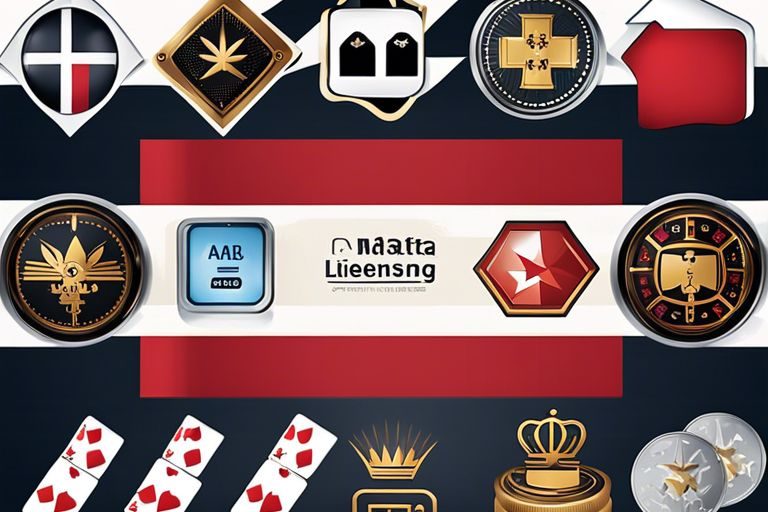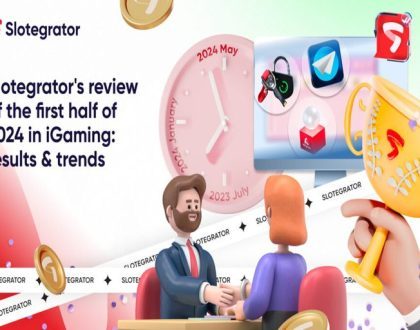Malta’s iGaming Licenses – The Full Story

There’s no denying the importance of Malta’s iGaming licenses in the online gambling industry. As one of the first jurisdictions to regulate online gaming, Malta has become a hub for operators seeking legitimacy and reputation. However, the process of obtaining and maintaining a Maltese license is not without its challenges. From stringent regulatory requirements to ongoing compliance monitoring, operators must navigate a complex framework to stay in business. In this blog post, we dive deep into the full story behind Malta’s iGaming licenses, shedding light on the benefits and pitfalls of operating under this prestigious jurisdiction.
History of iGaming in Malta
While known for its sunny beaches and rich history, Malta has also made a name for itself as a hub for iGaming. The journey of iGaming in Malta dates back to the early 2000s when the government saw the potential of this industry and decided to regulate it, paving the way for what is now a thriving sector in the country.
Evolution of Online Gaming Legislation
To meet the growing demands of the iGaming industry, Malta continuously updated its online gaming legislation. The Malta Gaming Authority (MGA) was established in 2001, laying the foundation for a regulatory framework that ensured a safe and fair gaming environment for both operators and players. The evolution of legislation in Malta reflects the government’s commitment to staying at the forefront of the industry.
Key Milestones in Regulatory Development
The establishment of the Remote Gaming Regulations in 2004 marked a significant milestone in the regulatory development of iGaming in Malta. This framework provided clear guidelines for operators seeking a license from the MGA, setting the standard for transparency and accountability in the industry. Subsequent amendments to the regulations further solidified Malta’s reputation as a leading iGaming jurisdiction.
Malta has become a popular choice for iGaming companies due to its efficient licensing process and favorable tax regime. The country’s strategic location in the heart of Europe, coupled with its reputation for regulatory excellence, has attracted a diverse range of operators seeking to establish their presence in the market.
Types of iGaming Licenses in Malta
If you’re looking to operate in the iGaming industry in Malta, it’s imperative to understand the different types of licenses available. Malta Gaming Authority (MGA) offers four main types of licenses:
- Class 1 – for operators offering games of chance played against the house.
- Class 2 – for operators offering games of chance played against each other.
- Class 3 – for operators promoting and/or abetting remote gaming in or from Malta.
- Class 4 – for software vendors who manage and control their own risk on behalf of the licensees.
Recognizing the specific needs of each type of iGaming operation, these licenses cater to a wide range of activities in the industry.
License Categories and Their Functions
The four main types of licenses in Malta serve distinct purposes and cater to different aspects of the iGaming industry. Class 1 licenses are suitable for operators offering games of chance against the house. Class 2 licenses are for operators facilitating betting exchanges. Class 3 licenses are meant for operators promoting and/or abetting remote gaming in or from Malta. Class 4 licenses are tailored for software vendors who provide management services to other licensees, effectively outsourcing certain aspects of their operations.
Application and Renewal Process for Licenses
Understanding the application and renewal process for iGaming licenses in Malta is crucial for operators seeking to enter or remain in the market. The process involves a thorough review of the applicant’s business plan, financial standing, security measures, and compliance with regulations. Meeting all requirements set by the MGA is crucial to ensure a smooth application and successful renewal process. Additionally, maintaining a good standing with the MGA throughout the license term is imperative to avoid any disruptions to operations. It is important to stay updated on any changes to regulations that may impact the license application or renewal process.
Regulatory Framework and Compliance
Malta Gaming Authority (MGA) Role
To ensure the integrity of Malta’s iGaming industry, the Malta Gaming Authority (MGA) plays a prominent role in regulating and overseeing the licensing process. Any company looking to operate in Malta must adhere to the strict regulations and guidelines set forth by the MGA to maintain a high standard of compliance and player protection.
Legal and Financial Compliance Requirements
To operate an iGaming business in Malta, companies must meet stringent legal and financial compliance requirements. This includes having robust anti-money laundering protocols in place, conducting thorough due diligence on customers, and maintaining adequate financial records to comply with regulations set by the MGA.
This ensures that companies operating in Malta’s iGaming industry are held to the highest standards of compliance and transparency. Failure to meet these requirements can result in severe penalties, including fines or the revocation of a company’s gaming license.
Benefits and Challenges of Malta’s iGaming Licenses
Economic and Business Advantages
Many companies choose to obtain iGaming licenses in Malta due to the numerous economic and business advantages it offers. With a stable political environment, a highly skilled workforce, and a favorable tax regime, Malta has become a hub for the iGaming industry. Companies benefit from access to the European market, legal certainty, and a streamlined licensing process, making it an attractive location for setting up operations.
Criticisms and Regulatory Hurdles
Regulatory scrutiny and compliance issues have been some of the criticisms and regulatory hurdles faced by operators holding Malta’s iGaming licenses. The Malta Gaming Authority (MGA) has faced challenges in effectively regulating the industry and ensuring compliance with stringent regulations. Some critics argue that the process for obtaining a license is too complex and time-consuming, leading to delays and frustrations for operators.
Businesses operating under Malta’s iGaming licenses need to navigate a complex regulatory environment to ensure compliance with various legal requirements. Non-compliance can result in hefty fines, suspension, or revocation of licenses, posing a significant risk to businesses.
Future Outlook of iGaming in Malta
Trends in License Issuance
Now, in the ever-evolving landscape of iGaming, Malta continues to be a prominent player in the industry. The trends in license issuance indicate a steady increase in the number of operators seeking licenses from the Malta Gaming Authority (MGA). This growth can be attributed to Malta’s reputation as a well-regulated jurisdiction with a strong framework for online gaming operations.
Potential Regulatory Changes and Industry Impact
Issuance of licenses in Malta may face potential regulatory changes in the near future. This could impact the industry significantly, leading to adjustments in compliance requirements and operational standards. Operators should prepare for possible shifts in regulations that could affect their business strategies and practices.
This anticipated change underscores the importance of staying informed and adaptable within the iGaming sector. Operators must stay abreast of any new regulations and be proactive in implementing necessary changes to ensure compliance and sustainability in the market.
To wrap up
Following this comprehensive overview of Malta’s iGaming licenses, it is clear that Malta has solidified its position as a leading jurisdiction for online gaming operators. With a robust regulatory framework, competitive tax rates, and a favorable business environment, Malta continues to attract a wide range of operators seeking to establish a presence in the European market. By understanding the full story behind Malta’s iGaming licenses, operators can make informed decisions that will help them navigate the complexities of the industry and ensure compliance with all regulatory requirements. As the iGaming landscape continues to evolve, Malta’s commitment to innovation and excellence in regulation will undoubtedly continue to drive its success in the industry.
FAQs:
What types of iGaming licenses does Malta offer?
Malta offers four main types of licenses: Class 1, Class 2, Class 3, and Class 4, catering to various aspects of the iGaming industry.
What is the application process for obtaining an iGaming license in Malta?
The application process involves a thorough review of the applicant’s business plan, financial standing, security measures, and compliance with regulations set by the Malta Gaming Authority (MGA).
What role does the Malta Gaming Authority (MGA) play in regulating iGaming licenses?
The MGA oversees the licensing process and ensures compliance with strict regulations to maintain integrity and player protection within Malta’s iGaming industry.
What are the economic benefits of obtaining an iGaming license in Malta?
Malta offers economic advantages such as a stable political environment, favorable tax regime, access to the European market, and a streamlined licensing process for iGaming operators.
What are the potential challenges faced by operators holding Malta’s iGaming licenses?
Challenges include regulatory scrutiny, compliance issues, complex application processes, and the risk of penalties for non-compliance.
Michael
With over 20 years experience in web design, SEO and website promotion I always give you an expert advice in regard to any issues related to your Site Design, SEO, Internet Marketing, Promotion, Backlinks, Site Content. In order to help you find out what is missing or can be improved and get higher rankings in Google and more traffic.
Recommended Posts

Slotegrator’s 2024 Journey in iGaming
May 17, 2024

GunsBet Casino Review
May 17, 2024

Spinomenal Unveils Quest to the Underworld
May 17, 2024




